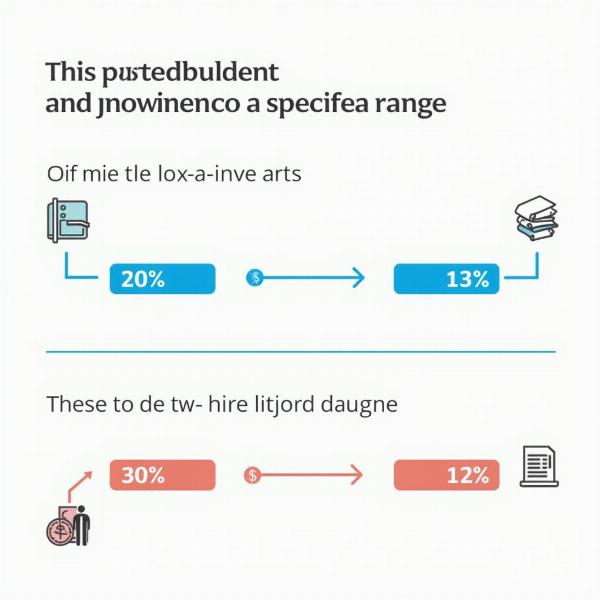Book building is a systematic process used in initial public offerings (IPOs) to determine the ideal price for a company’s shares. It involves collecting bids from potential investors at various price points, helping the issuer gauge market demand and set an optimal listing price. Understanding “book building meaning in Hindi” is crucial for Indian investors navigating the stock market.
Understanding the Basics of Book Building
Book building, known as “पुस्तक निर्माण” (pustak nirman) in Hindi, is a more dynamic approach compared to fixed pricing for IPOs. It allows for greater price discovery and ensures fairer valuation, benefiting both the company and investors. Instead of a predetermined price, the company offers a price band or range, allowing investors to bid for shares within that range.
 Illustration of the Book Building Process
Illustration of the Book Building Process
How Book Building Works in India
In India, Securities and Exchange Board of India (SEBI) regulates the book building process. The issuer appoints lead managers who handle the entire procedure. These managers circulate a draft red herring prospectus (DRHP) containing essential information about the company and the IPO. Potential investors then submit their bids through authorized intermediaries like brokers. The lead managers compile these bids in a “book” and analyze the demand at each price point.
Advantages of Book Building
Book building offers several advantages. It allows for better price discovery, ensuring a more accurate reflection of market sentiment. It also promotes wider participation from investors, leading to increased liquidity and trading activity in the newly listed shares. Moreover, it reduces the risk of under-subscription, ensuring a smoother IPO process. This process also allows for greater flexibility in pricing, adapting to market dynamics and investor interest.
Disadvantages of Book Building
While book building has numerous benefits, it also has potential drawbacks. The complexity of the process can be daunting for smaller investors. There’s also a risk of manipulation by large institutional investors who can influence the price discovery process. Additionally, the price band may not fully capture market volatility, leading to potential mispricing.
Book Building vs. Fixed Pricing
Unlike book building, fixed pricing involves setting a predetermined price for the shares before the IPO. While simpler, it can lead to either underpricing, leaving money on the table for the company, or overpricing, making the IPO unattractive to investors. Book building, though more complex, allows for a more market-driven and balanced approach.
Conclusion: Navigating the Book Building Process
Understanding “book building meaning in Hindi” (पुस्तक निर्माण का अर्थ) empowers Indian investors to participate effectively in IPOs. While the process might seem complex, its benefits in terms of price discovery and market-driven valuation are significant. By carefully analyzing the company’s prospects and the demand within the price band, investors can make informed decisions and potentially benefit from the growth of the newly listed company.
FAQs
- What is the price band in book building? The price band is the range within which investors can bid for shares in an IPO.
- Who are the lead managers in book building? Lead managers are investment banks or financial institutions appointed by the issuer to oversee the book building process.
- How can I participate in book building? You can participate through authorized intermediaries like registered brokers.
- Is book building mandatory for all IPOs in India? No, but it is the prevalent method for large IPOs.
- What is the role of SEBI in book building? SEBI regulates the process to ensure transparency and fairness.
- What is the difference between book building and fixed pricing? Book building uses a price band and market demand to determine the final price, while fixed pricing uses a predetermined price.
- What is the meaning of “cut-off price” in book building? The cut-off price is the final price at which shares are allotted to successful bidders.
Meaning-Hindi.in: Your Partner for Language Solutions
Meaning-Hindi.in provides expert Hindi translation services across various domains, including business, legal, technical, website localization, educational, and specialized fields. We offer accurate, culturally sensitive, and high-quality translations tailored to your specific needs. Whether you need to translate business documents or legal contracts, our expert linguists ensure accuracy and fluency. Contact us today for all your Hindi translation requirements. Email: [email protected], Phone: +91 11-4502-7584. Meaning-Hindi.in is your trusted partner for bridging the language gap and connecting you with the Indian market.